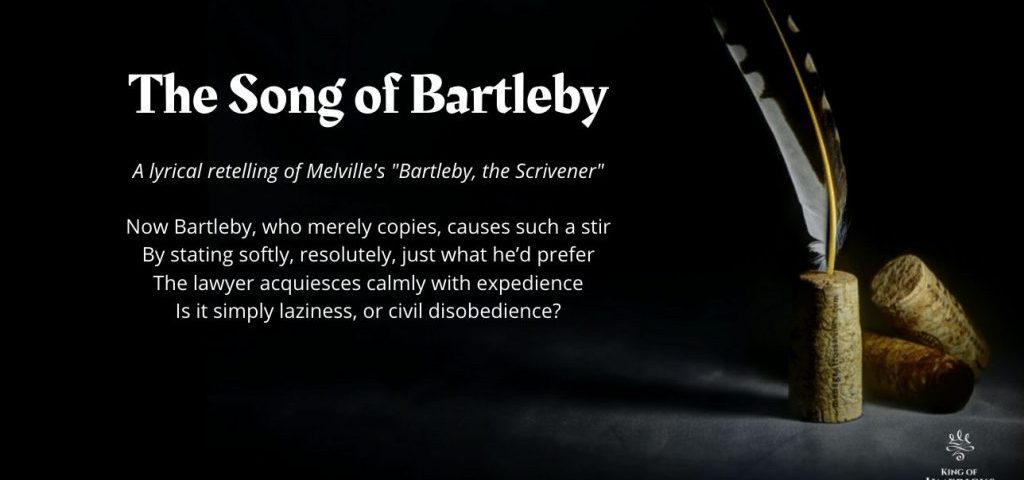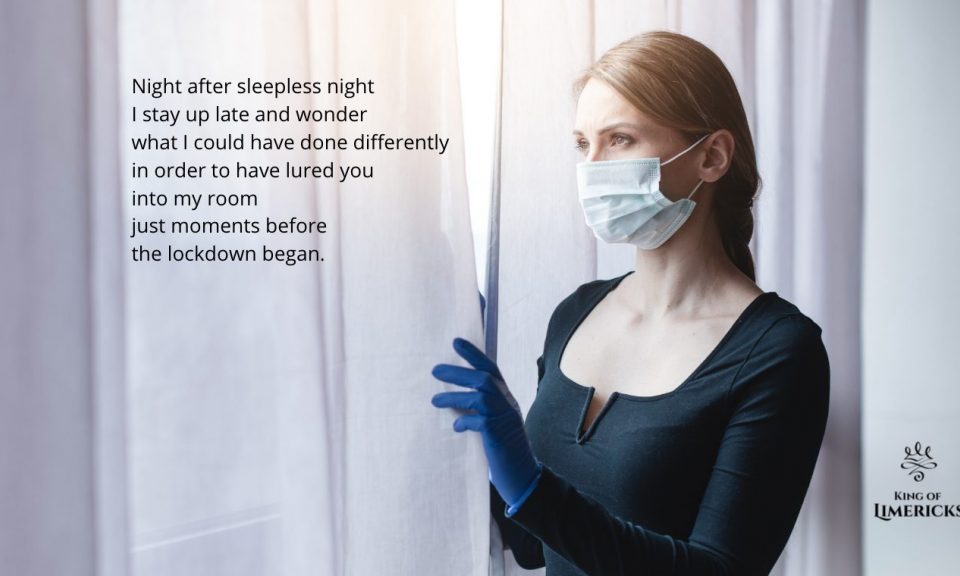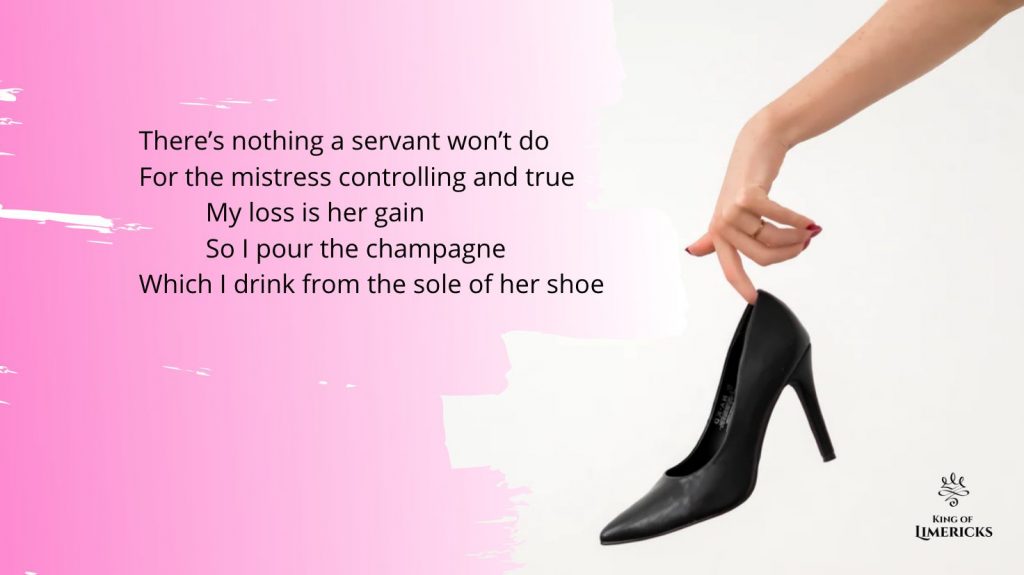
7 Kinky Limericks about Feet
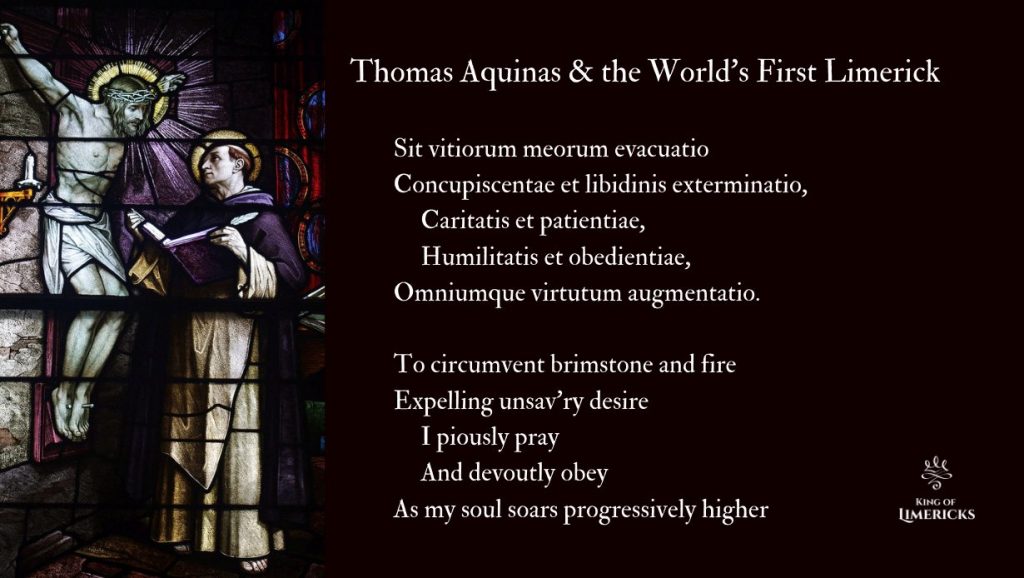
Thomas Aquinas and the World’s First Limerick
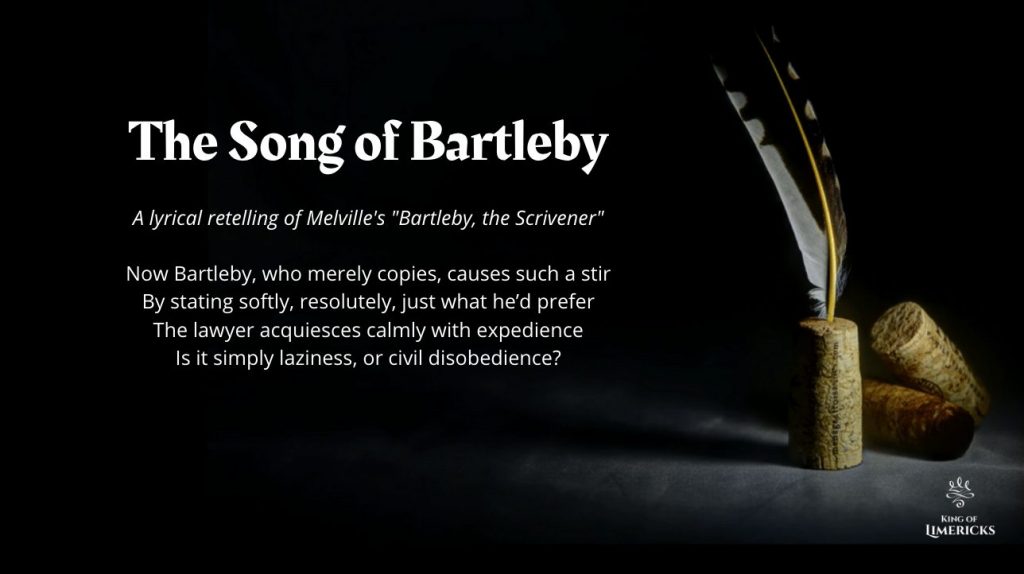
This lyrical retelling of Herman Melville’s “Bartleby, the Scrivener” is part of an ongoing series, entitled Simply Gothic. With these extended poems, I’m reworking classic works of Gothic and Romantic fiction, in hopes of making them more accessible to new audiences. At the same time, I’d like to think I can tickle the fancy of older audiences as well.
“Bartleby, the Scrivener”, while hardly the Leviathan which is Melville’s magnum opus, Moby Dick, remains one of the author’s most enigmatic works. The story itself is short and easy enough to summarize. But to really convey what it’s all about is something far more demanding.
First published in 1853, the story appeared in a time of great awakening in New England and great revolutions in Europe. Melville had surely read Thoreau’s Civil Disobedience which came out in 1849. But it’s quite unlikely that he’d read Kierkegaard’s The Sickness Unto Death, published that same year.
It would be many years before any of Kierkegaard’s works would be translated from Danish into English, and yet the themes of desperation and self-examination must have thoroughly permeated the Zeitgeist of the day. Upon close inspection, there’s no doubt that the sickness he speaks of has also infected Melville’s characters in their isolated Manhattan law office. But whether my poem succeeds in communicating that correlation remains another question.
Other stories in the Simply Gothic series include “The Black Cat” by Poe and “Feathertop” from Hawthorne.
The Song of Bartleby
A lawyer sets up office in a building made of brick
Surrounded by assistants and the paperwork is thick
It seems to be a solid structure fit for legal work
The front door facing Wall Street in the city of New York
The lawyer does a steady business drafting rich men’s deeds
Security’s his watchword and by prudence he succeeds
His copyists, though far from perfect, get their drudge work done
They move in cycles, like the markets, up and down they run
By mornings he can count on Turkey, not so after lunch
While Nippers in the mornings gets his pencils in a bunch
In any case, there’s one who works, before or after noon
They ebb and flow, predictably, like phases of the moon
By keeping clients satisfied, the legal work expands
To do things well, the lawyer needs another pair of hands
So Bartleby, with even temper, joins the office crew
And takes a desk beside the window, blank wall for a view
As Nippers and the Turkey work in tandem like a pair
Bartleby sits opposite a wall at which to stare
At first he’d copied faithfully, and never would complain
But ask him any other task and wait for his refrain
He doesn’t anger, doesn’t argue, won’t help like he ought to
Flat refusal, spoken thus: the scribe would “prefer not to”
Now Bartleby, who merely copies, causes such a stir
By stating softly, resolutely, just what he’d prefer
The lawyer acquiesces calmly with expedience
Is it simply laziness, or civil disobedience?
But Bartleby confounds the lawyer, acting without reason
His nonconforming attitude is tantamount to treason
Gradually he loses interest, stopping work completely
Passively resisting, from his unseen place, discreetly
Dead opposed to labor yet the man prefers to stay
While quiet desperation is the order of the day
And is the wall he’s gazing at so featureless compared
To that which other copyists have reproduced and shared?
Essentially the lawyer sees in Bartleby his match
Though both are Sons of Adam, there appears to be a catch
Like two sides of a tarnished coin that’s turning in the air
And Bartleby maintains the tension verging on despair
Thinking he can help the man, he opens up his purse
But Bartleby’s intransigence is only growing worse
Like Buddha sitting motionless, with nothing on his mind
Invisible, behind a screen, the ghost remains confined
Cadaverous, the lawyer calls him, more or less alive
And what is it they’re searching for? To what end do they strive?
The lonesome lawyer, Sunday morning, heads for house of God
But stopping by the office briefly, lights on something odd
It’s Bartleby, and half undressed, discovered unaware
Apparently the pallid clerk has taken lodgings there
So this is what the lawyer finds, examining inside
An absolutely lonely place for someone to reside
Uncovering this sorry scene, both sickened and alarmed
While Bartleby, who does so little, renders him unarmed
As if to haunt the lawyer’s life, the copyist ensures
A ghastly imposition just by doing as he prefers
Inscrutable in every way, a purpose only his
It isn’t what he does that counts, but merely that he is
Through willfulness or stubbornness, the stranger gets his way
More than human, less than human? Difficult to say
Challenging to reason with, upsetting expectations
Bartleby is quite content, devoid of aspirations
Still the lawyer has no choice, but have the man arrested
Never had he seen so stark, his way of life contested
Then preferring not to eat, he languishes in jail
A dead end lesson, never read, like undelivered mail
Further reading
We always appreciate feedback from our readers, so feel free to share your thoughts in the comments section. And if you enjoyed this retelling of Herman Melville’s “Bartleby, the Scrivener”, you may also want to check out these other entertaining excursions.

